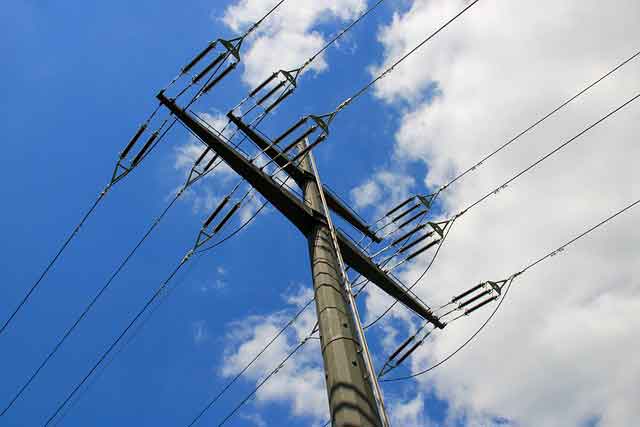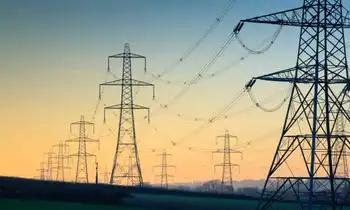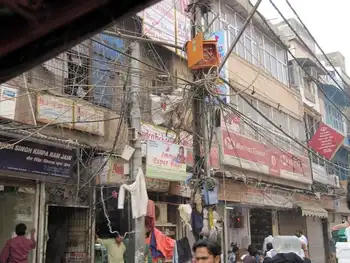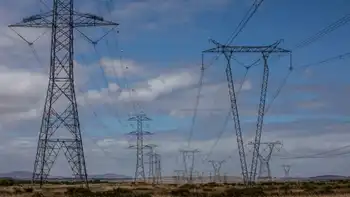Iran to accept UN nuke inspections
VIENNA -- - Iran's representative to the United Nations atomic watchdog said recently his country would give the U.N. a letter formally accepting tougher, short-notice nuclear inspections.
"The letter has been prepared and we are going to hand it over to the IAEA Secretariat," Ali Akbar Salehi, Iran's ambassador to the International Atomic Energy Agency (IAEA) told Reuters in an interview. "I would say it's in days."
Salehi also said Iran had given the IAEA original drawings of uranium-enrichment centrifuge parts on which IAEA inspectors had found traces of bomb-grade highly-enriched uranium (HEU).
"They have enough clues now to make their own conclusions," he said.
The United States accuses Iran of secretly working on an atomic bomb. Tehran vehemently rejects this claim and insists its programme is solely for peaceful generation of electricity.
Iran says the parts were contaminated with HEU before Iran purchased them abroad, an explanation that has met with scepticism among countries like the United States which believe Iran bought or purified the uranium itself for use in a bomb.
A diplomat familiar with the IAEA told Reuters delivery of the original drawings is significant, because they represent the "building blocks of Iran's centrifuge programme" and can help the agency's investigation into the origin of the uranium.
Iran has repeatedly said it was about to hand over the letter of intent to sign a protocol accepting short-notice inspections, but has yet to do so.
Salahi emphasised there was no question over Iran's intention to sign. "We cannot specify exactly the date. But it's certainly going to be before the (IAEA board meeting) because they have to be informed before the board so they can put it on the agenda," he said.
The main item on the IAEA governing board meeting is IAEA chief Mohamed ElBaradei's report on inspections in Iran and compliance with an October 31 deadline for Tehran to make a complete declaration of its nuclear programme. After the board approves Iran's intention to sign the Additional Protocol to the Non-Proliferation Treaty (NPT), Iran can sign the document.
Tehran has said it will allow the tougher inspections even before parliament ratifies the protocol.
Salehi said that "every expert knows that this has come from outside" Iran regarding the enriching of uranium speaking about the disputed HEU traces.
While several non-proliferation analysts have told Reuters it was doubtful Iran made the HEU itself, they suggested Iran may have purchased bomb-grade uranium without telling the IAEA. But Salehi denied this too. "No, we have not bought HEU."
Recently, Iranian officials told the foreign ministers of Germany, France and Britain that it would not only sign the Additional Protocol, but would temporarily stop enriching uranium as a confidence-building measure.
This had been requested of Iran in the IAEA board's tough September 12 resolution that set the October 31 deadline. But almost a week after the announced enrichment freeze, Iran said it had yet to take effect. Salehi said Iran had still not halted its uranium enrichment activities, which Washington fears are at the heart of a secret atomic weapons programme, but would do so soon.
"It's being studied, but measures are being taken to start this process. It (the suspension) hasn't yet started," he said. Diplomats told Reuters that there has been disagreement between the Europeans and Iran on what constituted a suspension.
The French, Germans and British want the massive Natanz enrichment plant to halt all operations, whereas Iran wants only to halt its enrichment centrifuges and continue research work. Salehi said that the Europeans and Iranians were close to an agreement on the definition of a suspension and said the halt was "not going to be very late in the future".
Related News

Energize America: Invest in a smarter electricity infrastructure
WASHINGTON - Much has been written, predicted, and debated in recent years about the future of the electricity system. The discussion isn’t simply about fossil fuels versus renewables, as often dominates mainstream energy discourse. Rather, the discussion is focused on something much larger and more fundamental: the very design of how and where electricity should be generated, delivered, and consumed.
Central to this discussion are arguments in support of, or in opposition to, the traditional model versus that of the decentralized or “emerging” model. But this is a false choice. The only choice that needs making is how to best…




